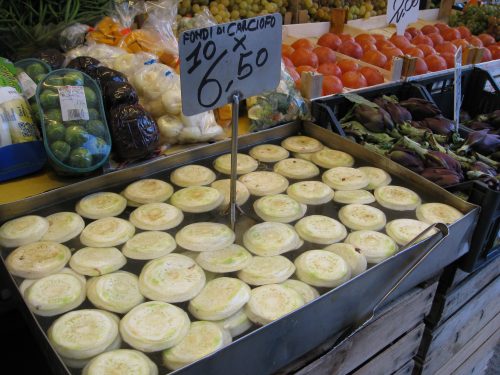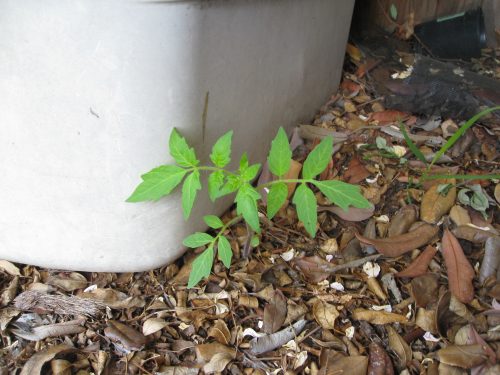We have ants. A lot of ants. In fact, we’re pretty sure that we built our raised beds atop an ant hill, because when we water, they are constantly running from bed to bed, carrying their pupa overhead (think: A Bug’s Life – “Save the Children!”). Things were fine until we started using drip irrigation. Maybe it’s because we are no longer literally raining on their parade, but they have moved into to my strawberry beds.
Enter garlic oil. We found a recipe for garlic oil that is supposed to help eliminate both ants and aphids. The theory is that if you eliminate the aphids, the ant won’t have any food left, so they depart as well. We are still in the experimental stages with this, but I thought we should provide the recipe for you anyway. This comes to you from About.com:
Garlic Oil Spray
Organic gardeners have long relied on garlic as part of their pest-fighting arsenal. Garlic contains sulfur, which, besides being toxic to pests, is also an antibacterial and antifungal agent. The dish soap in this mixture also breaks down the bodies of soft-bodied pests, such as aphids.
What You’ll Need:
- Three to four cloves of garlic
- Mineral oil
- Strainer or cheesecloth
- Liquid dish soap
- Water
- Spray bottle
To make garlic oil spray, mince or finely chop three to four cloves of garlic, and add them to two teaspoons of mineral oil. Let this mixture sit for 24 hours. Strain out the garlic pieces, and add the remaining liquid to one pint of water. Add one teaspoon of liquid dish soap. This mixture can be stored and diluted as needed. When you need to spray, use two tablespoons of the mixture added to one pint of water in a spray bottle.
To use your garlic oil spray, first test by spraying an inconspicuous part of the plant to see if your mixture harms it at all. If there are no signs of yellowing or other leaf damage after a day or two, it is safe to use. If there is leaf damage, dilute the mixture with more water and try the test again. Once you have determined that it won’t harm your plant, spray the entire plant, paying special attention to the undersides of leaves.
Warning: Garlic oil is a non-selective insecticide, which means that it will kill beneficial insects (such as lady bugs, who are natural predators of aphids) just as easily as it kills the bad guys. It’s best to keep as many beneficials around as possible. This spray should only be used if you haven’t seen any beneficial bugs in your garden. The tomato leaf recipe, above, won’t harm beneficials, so you should use that if you’re lucky enough to have some beneficials in your garden.
These sprays are easy to use, inexpensive, and effective. As you can see, even organic home remedies require care and attention to their effects. In general, use each spray as little as possible, and use it responsibly. You’ll win the battle against aphids, and still have a healthy garden after they’re gone.
http://organicgardening.about.com/od/pestcontrol/a/spraysforaphids.htm



Pingback: Gardenerd: Organic Edible Gardening | When Aphids Attack!
Just a note: we don’t use mineral oil because it’s a petroleum product. I think we used canola oil for this recipe and it worked fine.